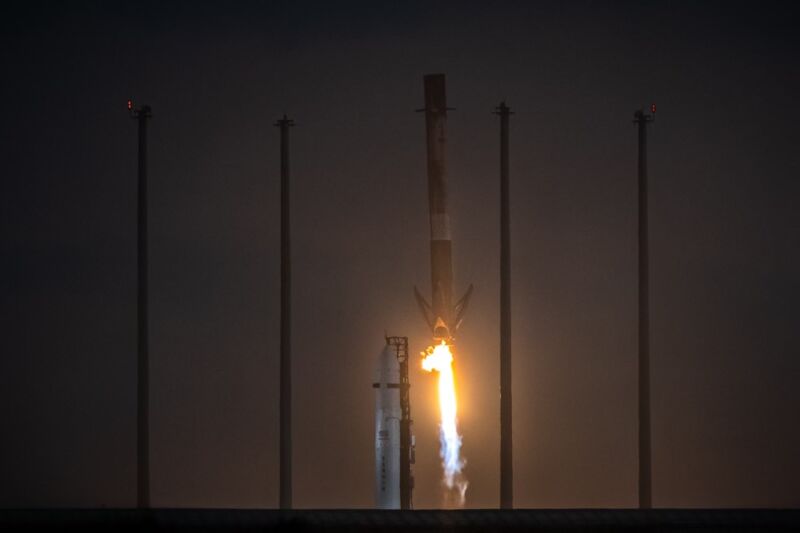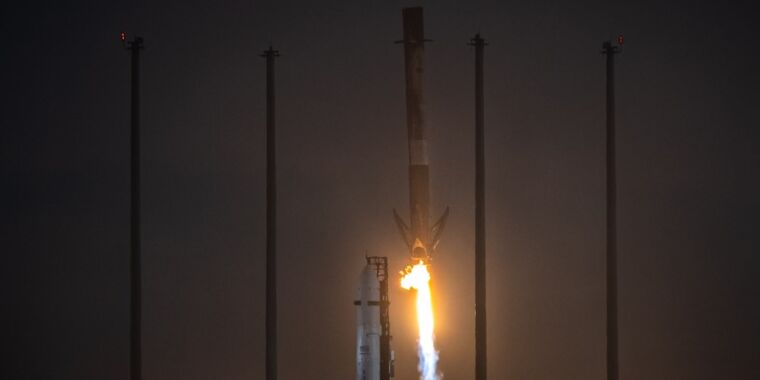
Trevor Mahlman
Welcome to Edition 5.20 of the Rocket Report! I really enjoyed celebrating the 50th anniversary of the Apollo 17 mission this week. While it’s bittersweet that humans haven’t returned to the moon since, it’s comforting to know that we’re now following a sure and stable path that will lead us back into the not-too-distant future.
As always, we welcome reader submissions, and if you don’t want to miss an issue, please subscribe via the box below (the form will not appear on AMP-compatible versions of the site). Each report includes information on small, medium and heavy rockets, as well as a brief preview of the next three launches on the calendar.

Virgin Orbit’s UK launch slips to 2023. Earlier this week, Virgin Orbit issued a press release saying the launch window for its LauncherOne mission from Cornwall, England, would open on Dec. 14. But on Thursday the company said the mission had been delayed for at least several weeks, BBC News reports. In a statement, Virgin Orbit CEO Dan Hart said: “With licenses still outstanding for the launch itself and for the satellites within the payload, additional engineering work required to make the system healthy and ready, and a very limited launch window available. of just two days, we have determined it would be prudent to refocus the launch for the next few weeks to give ourselves and our stakeholders time to pave the way for full mission success.”
So into the new year … At the start of this year, expectations were high that the UK’s first space launch would take place sometime in 2022, at which point Virgin Orbit officials were targeting September. But the company has run into regulatory roadblocks in licensing the launch. With those regulatory issues still to be finalized, we can now safely say that LauncherOne’s highly anticipated flight from Cornwall – the first orbital launch attempt from British soil – will slip through at least January. (submitted by Ken the Bin and EllPeaTea)
Chinese rocket reaches Earth orbit for the first time. A privately owned Chinese solid-fuel rocket has made its first successful launch two years after failing its first test flight, Space.com reports. The Kuaizhou 11 rocket lifted off from the Jiuquan Satellite Launch Center on Wednesday, local time, carrying the VHF Data Exchange System test satellite into orbit. The launch vehicle is operated by Expace, a commercial spin-off of the state-owned China Aerospace Science and Industry Corporation.
Coming back from adversity … The Kuaizhou 11 rocket is advertised to be capable of carrying about 1,000 kg of payload to sun-synchronous orbit, or up to 1,500 kg to low-Earth orbit. The first launch of Kuaizhou 11 took place in July 2020, but failed. Expace also suffered an explosion during testing at the Jiuquan spaceport, which may have been a factor in the rocket’s two-year grounding. (submitted by Ken the Bin)
Dawn Aerospace raises $20 million for rocket plane. Dawn Aerospace has raised another $20 million to help design a commercial version of its reusable spacecraft, Stuff reports. The funding will help design the Mk-III Aurora, a reusable rocket-powered spacecraft the size of a small corporate jet intended to launch satellites into space. The company is preparing to fly a suborbital prototype, the Aurora Mk-II, with rocket engines in 2023. This is a demonstrator for the full version.

